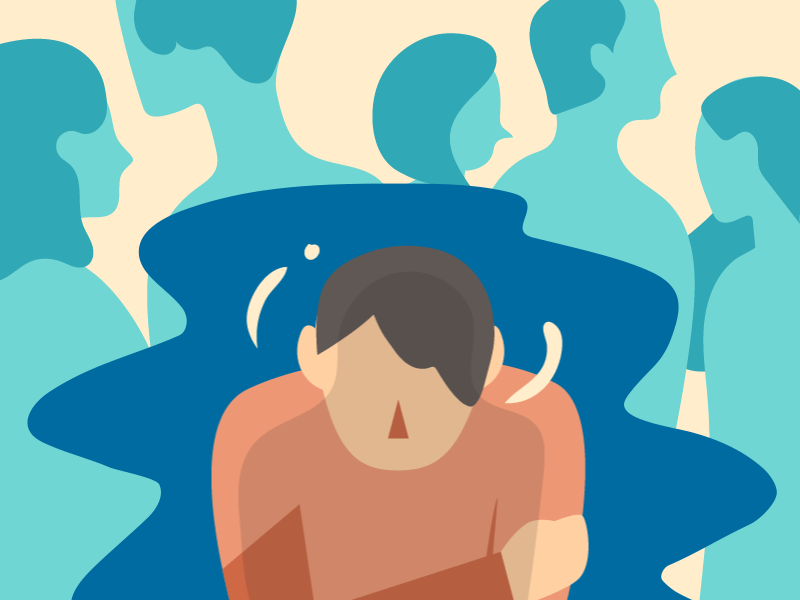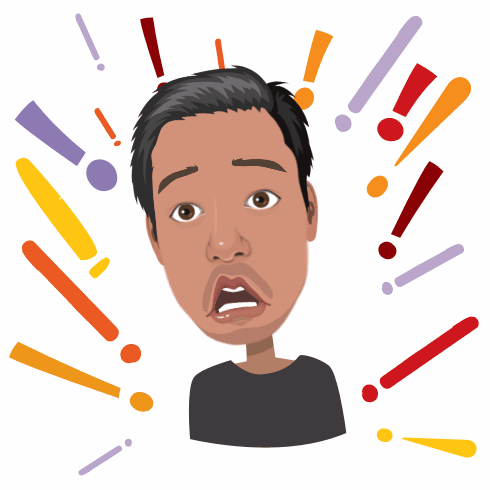



Hello! Do you suspect you have social anxiety? Some people are just shy, but others could suffer from anxiety. Which one are you? Take this social anxiety test to find out!
Social anxiety is a strong fear and stress connected specifically to social situations. Social anxiety is more than just shyness or stage fright, it can affect relationships, work life, daily activities, and a person’s self-esteem.
What are the causes of social anxiety? Most likely, anxiety is a result of a mix of many facets.
Social anxiety disorder tends to run in families, so if you have a family member with it, you’re likely to have it too. Scientists aren’t sure if anxiety is genetic or if it’s the case of children learning certain behaviors from their parents.
Your brain structure might also be crucial. The amygdala, a part of the brain, can affect how you respond to fear. People with an overactive amygdala may experience an intensified fear response, which results in anxiety in social situations.
Sometimes we can learn anxiety. It can manifest after negative experiences like bullying, rejection, or embarrassment. Children of overprotective, controlling, or worrying parents might develop anxiety.
Are you ready for your social anxiety test? Before jumping into the questions, read on about social anxiety symptoms.
See if you have anxiety.
If you recognize these symptoms in you, you likely have social anxiety:
Do you recognize yourself in several or more of these signs? It’s possible you have social anxiety. Check with our free social anxiety test.
Treatment for social anxiety depends on a person’s specific situation and how much their condition affects their daily life. There are different types of treatment, including medication, psychoanalysis, and therapy.
Prescription medications are effective for many patients suffering from anxiety. These include:
You’re getting closer to your social anxiety test!
Therapy can be used solo or accompanied by medication. Your needs will determine the precise type of therapy you receive. Request a recommendation from your doctor. A growing number of websites exist that can help you find the right specialist.
Cognitive-behavioral therapy assists you in changing your thought patterns in order to better manage your emotions and behaviors. Different types of techniques are used in CBT therapy, including exposure, training in social skills, and cognitive restructuring.
Exposure therapy in the case of social anxiety would mean imagining a fear-inducing social situation or experiencing it in reality. Practicing uncomfortable situations and gaining experience will result in a person being more confident and less anxious.
Cognitive restructuring involves a series of exercises that are supposed to pinpoint negative thoughts, assess if they’re true, and create positive thoughts to contest them.
Social skills training teaches people appropriate behaviors in typical social situations. Each session of the training is focused on different activities. Patients will be taught how to start and maintain a conversation, how to make eye contact, how to be assertive, and how to make phone calls.
The strategy that teaches people to accept unpleasant emotions is is known as acceptance and commitment therapy, or ACT. Detachment from negative thoughts is supposed to overtime lessen the symptoms of social anxiety.
In psychoanalysis, a therapist assists you in understanding issues from your childhood that might be the reason for your anxiety.
Are you a nervous wreck? Find out if you have social anxiety with our online social anxiety test. Good luck, and don’t worry too much!